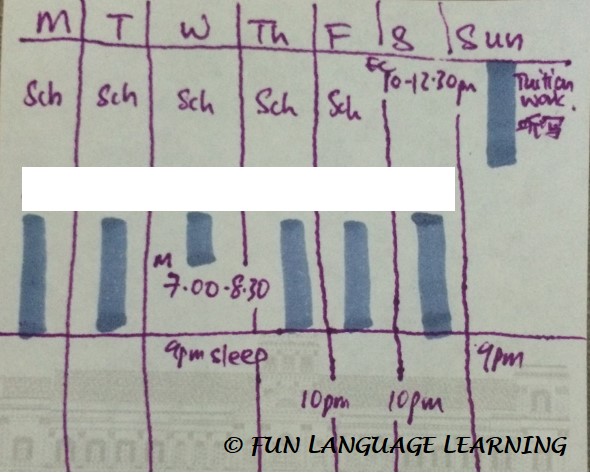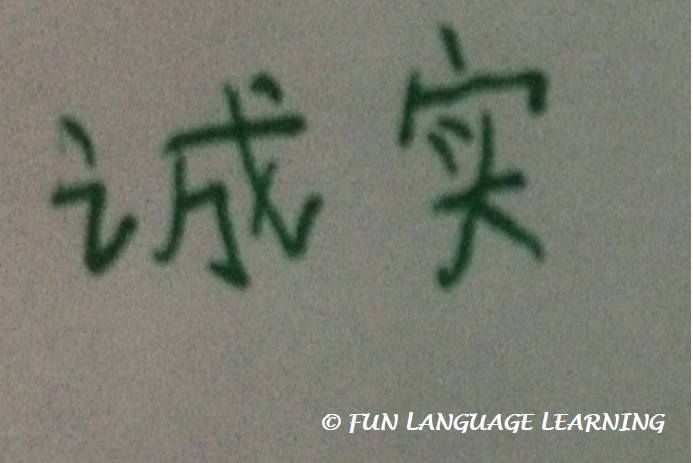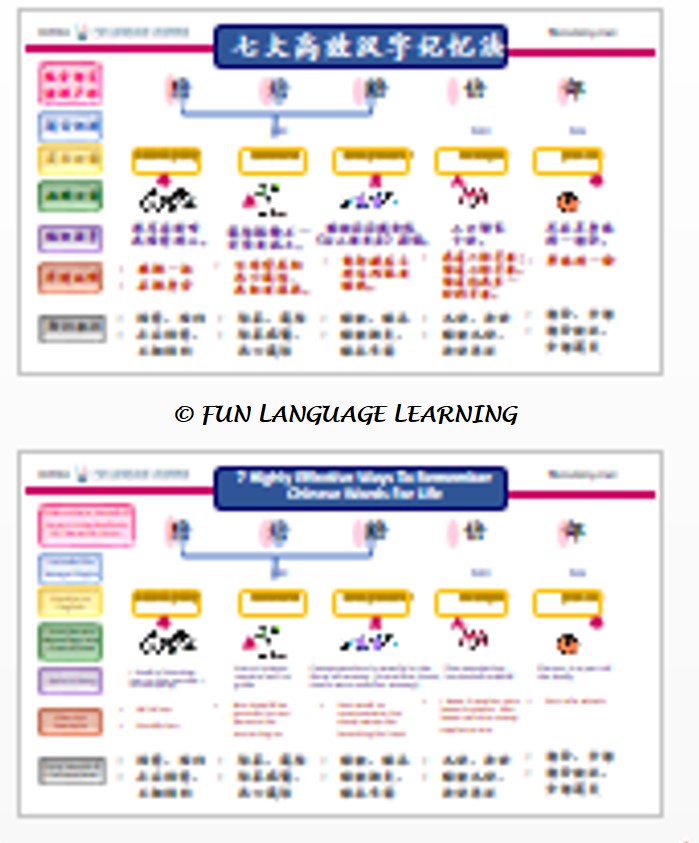My 9-year-old came to my lesson looking glum.
Really glum.
This was unlike his usual chirpy self, so I immediately sensed it.
However, I didn’t need to probe. His sister soon revealed the reason for his unhappiness.
In fact, he had just cried.
His mother had tested him on his Chinese spelling and he could not recall some words. She found him ill-prepared and was upset with his overly laid-back attitude towards learning. As a punishment, he was to stay at home to review his work while the rest of the family would go out.
This might sound valid, but it was a big deal for him.
He had wanted to join the outing.
I knew that if it was not handled properly, he might interpret this negatively. Self-reproach (自责), resentment (不服气), anger (气愤) and a whole host of negative emotions might accumulate in him. These would have defeated the purpose of his mother’s real intention.
So, I started the lesson with a quick game that they were familiar with, mainly to settle him down. If I had gone straight into my agenda of the day, his whole mind would still be on this matter and nothing would have gone in.
Anyway, he lost the game.
Shouldn’t we let him win?” his sister suggested. “He’s already unhappy [over the spelling incident].”
To which, I smiled and replied, “No, he doesn’t need our pity to win.”
Then I turned to him and asked, “Are you ready to go through the spelling list with me? When you go home, ask to be tested again.”
By that time, he had already calmed down. “Yes, I want to be tested again,” he answered.
While his sister worked on a separate task, we tackled the words on the list one-by-one. Slowly, I learnt that there were a few factors that contributed to his ‘failure’ to recall the words:
- He only studied the night before being tested
- He studied some words blindly without knowing the meaning
- He tried to memorise the words rigidly by staring at them and writing them many times
All these had to be addressed so that moving on, he could learn more effectively.
Apparently, he needed to plan his time, understand what he’s learning and develop more effective ways of retaining words.
And so, we went through the process step-by-step:
1) How To Manage Time
We know that successful people have discipline and take actions consistently. For our children to develop such traits, we need to guide them.
If your children have already found a way of completing tasks consistently during earthly hours of the day, let them be. If they have not been completing their work, obviously their current way of doing things is not working. Sit down and plan with them.
I sat down with my 9-year-old and worked through his daily timetable, showing him how much time he had to complete his school and tuition assignments.
Timetable that needs tidying up
Notice that I only highlighted some free time slots. He needs to learn how to be flexible and insert his activities.
A time-based plan would be too rigid if it dictates the exact time he does a particular activity. An activity-based plan would be too fluid if it just lists the activities he has to complete but doesn’t help him allocate time to do them.
I believe children should have a timetable and a list of activities that include not just work but playing and resting.
Let them weave in the activities themselves. The ultimate planning should come from them and not us. Otherwise, we would all become their secretaries.
In the process of planning, my 9-year-old shared that he didn’t have homework every day and realised he had time for other activities. He also indicated when he’d start learning his spelling.
2) How To Understand Chinese Words Better
I’m a firm believer that if we don’t understand the meaning of the words we are learning, there’s little point in knowing their forms. Thus, I walked him through these 3 steps:
- Read the words aloud
If he did not know how to read a word, I would pronounce it and he would write the Hanyu Pinyin beside it. On his own, he would have to look up his textbook or dictionary and jot it down.
- Explain the meaning in Chinese
By this, I mean a combination of giving the definition of the word, using it in context by making a sentence and giving an example. If he couldn’t give an example, I would give him one and ask him to give me another one.
- Explain the meaning in English
I like to help children connect the dots and link English with Chinese. It’s an additional level of association to help them get acquainted with new words. For instance, I told him that the capital (首都) of Korea is Seoul; he explained that Singapore is a city and because we are a small country, our capital is our country itself. Fantastic, isn’t it? This shows that he knew the concept of a capital and just hadn’t linked it to the Chinese word before this.
After going through these steps, I asked, “Now, are you confident if I test you in English and you say the phrase in Chinese before writing it?”
“Huh? But nobody tests me like that,” he faltered.
“Are you ready?” I pressed on.
Can you guess what happened next?
I’ll reveal it later in this post. Let’s see how he managed to remember some problematic words.
3) How To Remember Chinese Words
Two of the problematic words he had encountered were “诚实 (honest).”
He wrote “成 + blank.”
“How can you remember it’s 诚 and not 成?” I asked, pointing to the two similar-looking words.
“One has a 言字旁 and the other doesn’t,” he said as expected.
“Why is there a言字旁for 诚?” I probed further.
“Because you need to say it out?” he tried, sounding a bit uncertain.
He was almost there and I just wanted him to present his idea clearly.
So I continued, “When you are honest, you are not afraid of …?”
“Telling the truth.” He finished my sentence.
“Exactly!” I gave a thumbs up.
“So we use 言 to mean ‘say it out’,” he beamed.
By the way, this may not be the ‘real’ reason behind 言字旁for 诚 but we are not into the etymology of this word. I encourage children to invent their versions of associations to help them remember words.
For 实, I got him to visualise a person wearing a hat (宀)who’s proud that he’s honest so he raises his head (头) up high.
“Wouldn’t his hat slip off?”
That caught me by surprise but I just smiled, “He can pick it up.”
Hey, that shows he was thinking, isn’t it?
Well, we didn’t spend the whole session on Chinese spelling but it was enough to give him a confidence boost.
Oh yes, this was his reply to my question about testing him in English while he wrote in Chinese:
“Ok, let’s do it.”
And he did it.
The word ‘honest’ written in Chinese by my 9-year-old
When he got home, he initiated to be tested again.
This is what I want my students and our children to have: the confidence to face their problems after falling.
I’m so proud of this little fellow.
Do you want to know how I teach my students to remember Chinese words so that they don’t depend on me to remind them?
Download this free bilingual infographic: 7 Highly Effective Ways To Remember Chinese Words For Life.




